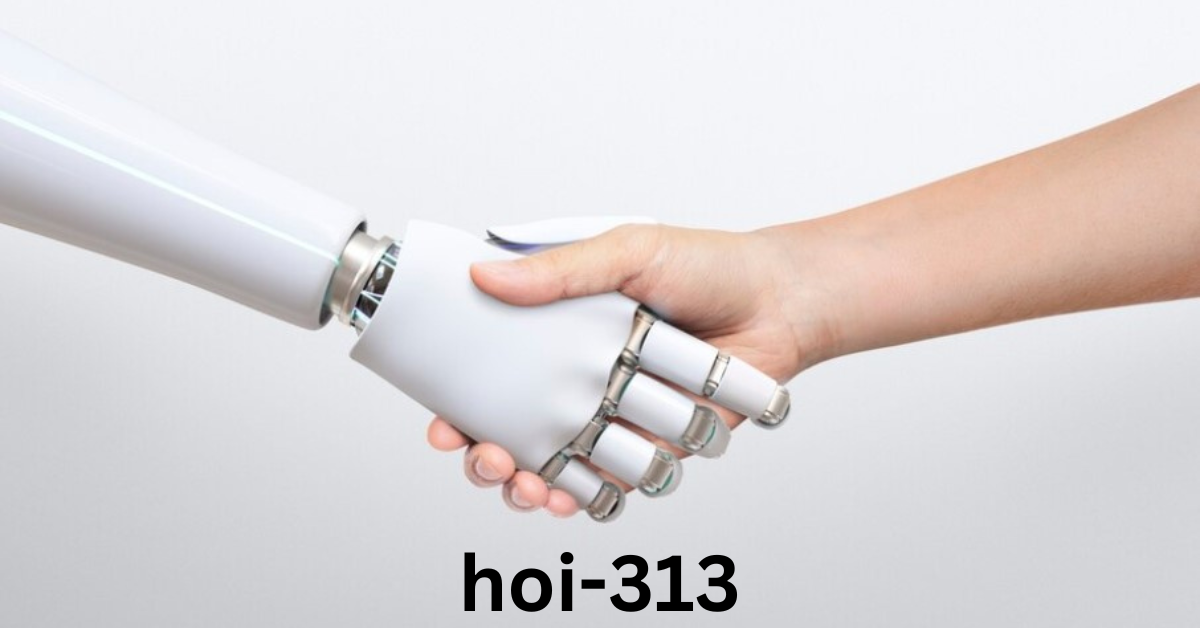In the ever-evolving landscape of technology and science, new innovations continuously emerge, captivating our interest and reshaping our world. One such innovation is Hoi-313. Whether you are a tech enthusiast, a researcher, or simply curious about cutting-edge advancements, understanding Hoi-313’s functionalities and implications is crucial. This article aims to provide a detailed exploration of Hoi-313, its applications, advantages, and future potential.
What is Hoi-313?
Defining Hoi-313
Hoi-313 is a multifaceted technology that integrates artificial intelligence (AI) with advanced data analytics. It is designed to streamline various processes across multiple sectors, including healthcare, finance, manufacturing, and more. By harnessing the power of AI, Hoi-313 enhances decision-making, optimizes operations, and improves user experiences.
The Technology Behind Hoi-313
At its core, Hoi-313 utilizes machine learning algorithms and big data analytics. Machine learning allows the system to learn from data patterns, while big data analytics enables it to process vast amounts of information swiftly. This combination empowers Hoi-313 to make informed predictions and recommendations, catering to the specific needs of its users.
Applications of Hoi-313
Healthcare Innovations
One of the most promising applications of Hoi-313 lies within the healthcare sector. The technology is capable of analyzing patient data to provide personalized treatment plans. For instance, Hoi-313 can predict potential health risks based on a patient’s medical history, lifestyle choices, and genetic predispositions. This proactive approach allows healthcare providers to intervene early, ultimately improving patient outcomes.
Predictive Analytics in Patient Care
By utilizing predictive analytics, Hoi can identify trends in patient behavior and health conditions. For example, it can detect early signs of chronic illnesses, enabling healthcare professionals to implement preventive measures. This capability not only enhances patient care but also reduces overall healthcare costs.
Financial Sector Advancements
In finance, Hoi revolutionizes risk assessment and fraud detection. Financial institutions leverage the technology to analyze transaction patterns, identifying anomalies that may indicate fraudulent activity. Additionally, Hoi assists in credit scoring by evaluating a wider range of data points, leading to more accurate assessments of borrowers’ creditworthiness.
Risk Management and Compliance
With regulatory compliance becoming increasingly complex, Hoi simplifies the risk management process. It automates compliance checks, ensuring that financial institutions adhere to regulations while minimizing human error. This capability not only enhances operational efficiency but also mitigates the risk of costly penalties.
Manufacturing Efficiency
In the manufacturing sector, Hoi optimizes production processes. By analyzing data from various stages of production, the technology identifies inefficiencies and suggests improvements. This results in reduced waste, lower production costs, and increased output.
Predictive Maintenance
Another critical application of Hoi-313 in manufacturing is predictive maintenance. By monitoring equipment performance in real-time, the technology can forecast when machinery is likely to fail. This foresight allows manufacturers to schedule maintenance proactively, reducing downtime and improving overall productivity.
Advantages of Hoi-313
Enhanced Decision-Making
One of the most significant advantages of Hoi is its ability to facilitate informed decision-making. By providing accurate data analysis and predictions, organizations can make strategic choices that align with their goals. This enhanced decision-making capability leads to improved efficiency and effectiveness in operations.
Cost Efficiency
Implementing Hoi can lead to substantial cost savings across various sectors. By streamlining processes and reducing errors, organizations can lower operational costs. Furthermore, the predictive capabilities of Hoi allow businesses to allocate resources more effectively, minimizing waste and maximizing returns.
Improved Customer Experience
In today’s competitive landscape, providing an exceptional customer experience is paramount. Hoi enhances customer interactions by personalizing services and recommendations. For instance, e-commerce platforms can use Hoi to analyze customer behavior and tailor product suggestions, leading to increased customer satisfaction and loyalty.
Challenges and Considerations
Data Privacy Concerns
Despite its numerous benefits, Hoi raises significant data privacy concerns. The technology relies on vast amounts of personal and sensitive data to function effectively. Organizations must ensure that they comply with data protection regulations and implement robust security measures to safeguard user information.
Implementation Costs
While Hoi-313 can lead to cost savings in the long run, the initial implementation costs can be substantial. Organizations must weigh the potential return on investment against the expenses associated with adopting this advanced technology.
Workforce Implications
The integration of Hoi-313 may lead to workforce implications, particularly concerning job displacement. As automation becomes more prevalent, workers may need to adapt to new roles or acquire additional skills to remain relevant in the job market.
The Future of Hoi-313
Emerging Trends and Developments
The future of Hoi looks promising, with continuous advancements in AI and data analytics. As technology evolves, Hoi will likely become more sophisticated, enabling even more complex analyses and predictions. Emerging trends, such as the integration of blockchain technology, could further enhance Hoi-313’s capabilities, ensuring data integrity and security.
Expanding Applications
As awareness of Hoi grows, its applications will likely expand across various sectors. New industries may adopt the technology to streamline operations and improve efficiency, paving the way for innovative solutions to existing challenges.
Ethical Considerations
With the growing reliance on AI technologies, ethical considerations surrounding Hoi-313 will become increasingly important. Organizations must prioritize transparency and fairness in their algorithms to ensure that their applications do not perpetuate biases or discrimination.
Conclusion
In conclusion, Hoi-313 represents a significant advancement in technology, with the potential to transform various industries. Its applications in healthcare, finance, and manufacturing showcase its versatility and impact. However, organizations must navigate challenges related to data privacy, implementation costs, and workforce implications.
As we move forward, the future of Hoi-313 appears bright, with emerging trends and expanding applications on the horizon. By embracing this innovative technology while addressing ethical considerations, organizations can harness the power of Hoi-313 to drive progress and improve outcomes across multiple sectors.
FAQs about Hoi-313
1. What is Hoi-313?
Hoi is an advanced technology that combines artificial intelligence (AI) with big data analytics to optimize processes across various industries, including healthcare, finance, and manufacturing.
2. How does Hoi-313 improve healthcare?
In healthcare, Hoi analyzes patient data to provide personalized treatment plans, predicts potential health risks, and allows for early intervention, ultimately enhancing patient outcomes.
3. What role does Hoi-313 play in the financial sector?
In finance, Hoi helps with risk assessment and fraud detection by analyzing transaction patterns and automating compliance checks, which leads to more accurate credit scoring and reduced financial fraud.
4. How does Hoi-313 optimize manufacturing processes?
Hoi enhances manufacturing efficiency by identifying inefficiencies in production and enabling predictive maintenance, allowing companies to schedule repairs before machinery fails.
5. What are the advantages of using Hoi-313?
Key advantages include enhanced decision-making, cost efficiency, and improved customer experience. Organizations can leverage data-driven insights to make strategic choices and optimize resource allocation.
6. What challenges are associated with Hoi-313?
Challenges include data privacy concerns, high initial implementation costs, and potential workforce implications, such as job displacement due to increased automation.
7. What is the future outlook for Hoi-313?
The future of Hoi is promising, with continuous advancements in AI and data analytics expected to enhance its capabilities. Emerging trends may lead to new applications across various sectors.
8. How can organizations ensure ethical use of Hoi-313?
Organizations should prioritize transparency, fairness, and compliance with data protection regulations when implementing Hoi, ensuring that their algorithms do not perpetuate biases or discrimination.
9. Is Hoi-313 suitable for small businesses?
While Hoi can provide significant benefits, small businesses should evaluate their specific needs and resources before implementation, considering the potential return on investment.
10. Where can I learn more about Hoi-313?
For more information, you can explore research articles, industry reports, and case studies related to Hoi and its applications in various sectors.





